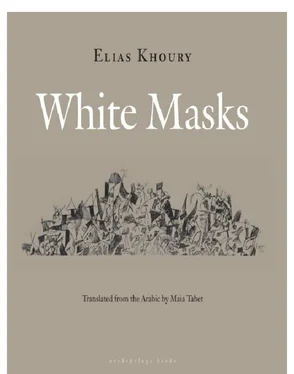God will provide. . He’s dead, they said. Just like that, dead. He was helping to unload a fridge, they told me, you know one of those enormous refrigerators. . he was bent forward, with his back braced against the truck, his arms extended behind him to steady the load. And he slipped, or the fridge slipped, honestly, I don’t know, anyway, something slipped, and the fridge fell on top of him, and he was crushed to death. It landed on him with an almighty thud, they said. They all heard it.
He went without a peep, they said, and when they brought him home he was dead as the dead. What was I supposed to do? Yes, of course, I wept, but I had to carry on working. I’ve a family to keep. People said I should go and have him registered as a martyr, a war hero, you know. They said go to one of those militia offices and register his name, and get the stipend. Nothing to it, they said.
So I went. But the men at the militia office wouldn’t do it. They said he wasn’t a martyr because he wasn’t a combatant.
“Consider him one!” I told them. “Did he not die in the line of duty, that we might live, that the port may prosper, that this country may be glorious, that the devil knows what. . for crying out loud, consider him something, anything!”
But they wouldn’t, and we got nothing, not a piaster.
Then they told me to go and see Nazeeh al-Tabesh, the owner of that café on the street corner. People said that with his “connections in high places” he would be able to “obtain something” for me. So I went to see him.
He was very polite, he gave me 1,000 lira and told me to come back in a week and that he’d have “something arranged.” Well, of course, the 1,000 lira just evaporated — it was as if I’d never had it. You know what it’s like, Sir, with all the expenses when someone dies. . the funeral, and then food and coffee and cigarettes for everybody.
When I went back to the coffee shop a week later, Mr. Nazeeh wasn’t there. They said he’d be back soon. I had just made it home when he arrived. He greeted me and sat down. Then he started explaining how difficult everything was.
“Things are difficult, my dear, and the monthly stipend is an extremely complicated matter. But listen, sister, yes, you’re like a sister to me, and I would like to be able to help you. . you’re still young, and you’re pretty, you know that. . and making a living could be the simplest of matters. If you did just three hours a day, you’d get one hundred lira, that’s more than a doctor makes in a day. What do you think?”
I didn’t understand what he meant. So I asked him to tell me more.
“There, take this 500 now, get yourself some new clothes, fix yourself up a bit-a little powder, some rouge, a touch of kohl, you know what I mean.”
“What for, Mr. Nazeeh, Sir?”
“They’re the tools of the trade, my dear. If you get yourself ready, you can get started in a couple of days. I’ll go with you to the client’s house, he’ll hand the money to me and I’ll give you your share — you are not to take direct payment.”
Now I understood! Shame! Shame on him for even thinking that I could do such a thing!
I threw him out, and tossed the 500 lira in his face! Imagine, suggesting that I should do such a disgusting thing! The nerve! Doesn’t he fear the good Lord? Does the Day of Judgement mean nothing to him?
He was armed, but arms don’t make a man. Honor, and honor only, makes a man and that Tabesh fellow has no honor! And he threatened me. “Where’s that thousand lira, then?” he said.
I told him I’d give it back to him but that he’d have to wait. The bastard tried to slap me, and when I began screaming, he ran off. . May he burn in hell!
And now? How are things now? Al-hamdulillah, I work for decent folk.
You know, people like yourself, Sir. We have just enough to eat, and my eldest, Mohammad, is an errand boy at our neighbor’s shop. I said it before, and I’ll say it again: praise be the Lord! Life is just one big game of chance, isn’t it. .
“You are pretty, Imm Mohammad,” I told her. I meant it too.
And why not give it a try? Life would certainly ease up for her, and, well. . one way or another it was work — and very lucrative work at that! “You’re a handsome woman,” I repeated, “and you could do it if you wanted to.”
“Even you, Sir! They told me you were a polite and courteous young man, and that’s why I agreed to see you, even though you’re a bachelor. Even you! No Sir, and the Lord is my witness!”
“Come on, Imm Mohammad, I was just joking! I didn’t mean it! And I am a polite and courteous young man!”
“We’re much obliged to honorable, decent folk like yourself, Sir,” she said.
I left her to her housework and went back to the airline office, and to my ticketing machine.
But, getting back to the problem. .
You see, I was trying to “change the air” as we say in our part of the world, to. . lighten up the atmosphere, to. . to lift up our spirits… and instead of fixing it, I broke it, as the sayings goes. .
But I digress. Back to the problem once more. So, what is the problem?
Look, I’m a realistic man, and realistic people keep their eyes open and their ears to the ground. I’ve watched and I’ve listened, but I still can’t figure it out. What you see is what I see: Khalil Ahmad Jaber was murdered, and by rights, we should be able to come up with a reason for his death. Isn’t that what we were taught? That to each problem there is a solution, to each effect a cause, for each birth a death. . That’s what we were taught, and the lesson has stuck: what goes up must come down; whoever digs his brother’s grave falls into it; the less said the better; kiss the hand you cannot break, and pray for it to be broken; whoever marries your mother call your stepfather; when the winds of change are blowing, keep your head down; the middle road is the best; let sleeping dogs lie; if speaking is of silver, then silence is of gold; secrets shared are secrets bared; who dares, wins, etcetera, etcetera, et cetera, et cetera, et cet era, et cet era, et cet era, etcetera, e t cetera…
My well-meaning attempt to “lighten up” has failed, even though I was only trying to follow the dictum that says you can find a seed of mirth in every reversal of fortune. When I tried to be daring and “change the atmosphere,” the story got worse. So where’s that seed of mirth?
OK, let’s start over: let us now assume that Khalil Ahmad Jaber didn’t die, let’s assume, just for the sake of argument, that the newspapers fabricated the story and that the coroner is lying — just like the novelist writing this story. If we assume all of that, then our problem is solved.
Yesterday I was struck by a devilish idea: why shouldn’t Khalil Ahmad Jaber have died just like the rest of us? That’s it! After all, a human being can’t die in anyway other than the way the rest of us die!
Suppose, for example, that he was sleeping in the hallway of a building, and some burglars came along, armed with guns and knives, and went up to the sixth floor and robbed the apartment, taking all the valuables they could carry with them. Just as they’re about to leave the building, they notice a man sleeping under the stairs, he seems restless and he’s snoring — as though he were just pretending to be asleep. They think he might have noticed something, so they panic and kill him.
The thing is, however, that this kind of an ending isn’t possible, because we’re not supposed to write illogical endings. And it would be illogical given the one certainty we have: that Khalil Ahmad Jaber was tortured. His left ring finger was severed, and his one and only valuable, the wedding band he’d bought in the gold souq thirty years earlier, was stolen from him.
Читать дальше












